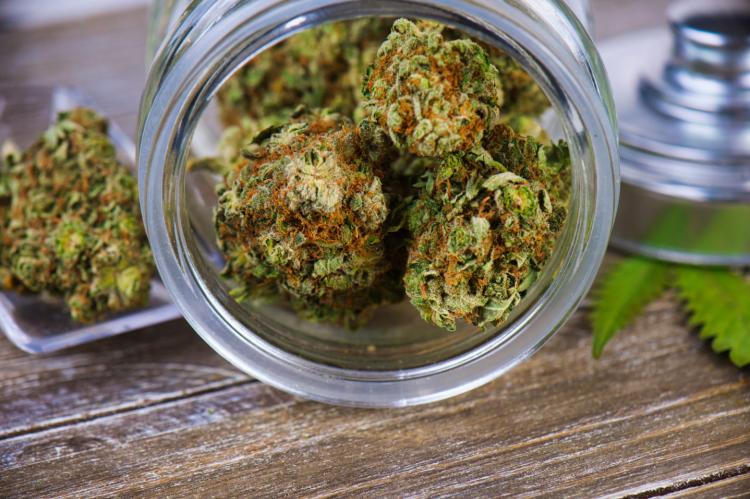Arizona, Nebraska advocates turn in signatures to put legalization on the ballot
Legalization advocates in both Arizona and Nebraska have submitted what is likely enough signatures to qualify adult-use and medical programs, respectively, for their November ballots.
The petition signatures must now be verified by the office of each state’s Secretary of State, with confirmations expected in August.
Both campaigns overcame significant hurdles during the 2020 coronavirus pandemic. Weeks of stay-at-home orders, combined with a requirement to gather signatures in-person, put the campaigns on hold for a while. The pause didn’t kill the efforts, though.
Yesterday, Arizona activists turned in 420,000 signatures for the Smart and Safe Arizona Act. They need 237,645 valid signatures to qualify.
On Thursday, Nebraskans for Medical Marijuana submitted 182,000 signatures for their medical marijuana constitutional initiative. They need roughly 122,000 valid signatures to qualify. There’s an added catch in Nebraska: Total signatures must include at least 5% of voters from a minimum of 38 counties across the state.
Nebraska comes roaring back
“Families with loved ones suffering from conditions like epilepsy, PTSD, and cancer have fought for years to make medical cannabis safely accessible,” Nebraska state Sen. Anna Wishart said in a recent statement. “Today represents a huge step forward for thousands of Nebraskans who deserve compassion.”
“We are confident that we’ve met the requirements for ballot qualification, and after seeing the outpouring of support for our petition, we’re even more confident that Nebraska’s voters will approve this initiative in November,” she added.
Sidelined by coronavirus quarantine
The remarkable numbers give advocates reason for optimism. In Nebraska, the initiative’s champions gathered at the state capitol in Lincoln on July 2 for a press conference during which they loaded the 183,000 petitions into a U-Haul truck. (Advocates have since added an additional 1,000 signatures to their total).
“The mood is jubilant. People are very happy with the numbers we’re turning in,” Jared Moffat, Campaigns Coordinator at the Marijuana Policy Project, which has played a major role in the Nebraska campaign, told Leafly. “There’s obviously a lot more work to do, but it’s a great day to take stock in how far we’ve come.”
Gathered 120,000 signatures in one month
Moffat also highlighted the campaign’s high-octane finish: Volunteers and paid canvassers gathered roughly 120,000 signatures in just the past month.
“We had a decent chunk before, but it completely went off the charts in the last few weeks,” Moffat said.
Volunteers gathered a huge portion of those signatures. “I’ve never seen or heard of anything like that,” Moffat added.
In Arizona, Samuel Richard, executive director of the Arizona Dispensaries Association, was confident that the overwhelming signature numbers would secure the Smart and Safe Act’s place on the ballot. “It would be some kind of abnormality beyond those we are getting accustomed to in 2020 for it not to be on the ballot,” he told Leafly.
Next step: signature validation
Advocates in both states are gearing up for potential legal battles over their signatures.
Nebraska Gov. Pete Ricketts (R) has voiced explicit opposition to any form of legalization. In 2015, members of the state legislature shot down a medical marijuana bill sponsored by now-former state Sen. Tommy Garrett, a Republican who is a major proponent of the current initiative.
“We started the campaign because we have to go around [prohibitionist politicians],” Moffat said. “People overwhelmingly support [medical marijuana] but hard-headed politicians are standing in the way.”
“The next phase is to defend signatures and make sure they aren’t throwing out valid signatures from registered voters,” he added.
In Arizona, where adult-use legalization failed to pass in 2016, Sam Richard is bracing for opposition from prohibitionist-minded politicians, as well as the state’s Chamber of Commerce (which had negotiated with legalization advocates earlier this year).
“We were hopeful that these supposed smart business folks would understand an initiative that would put $350 million every year in the state coffers would be something they would embrace,” Richard told Leafly.
“We’re making sure this passes overwhelmingly,” Richard added. “We’re not resting on our laurels. It’s important to approach the election as if you’re five points down. We’re still hungry. We’re going to work every day to make sure that voters across Arizona understand that now is the time to legalize it and tax it and regulate it.”
- Log in to post comments

